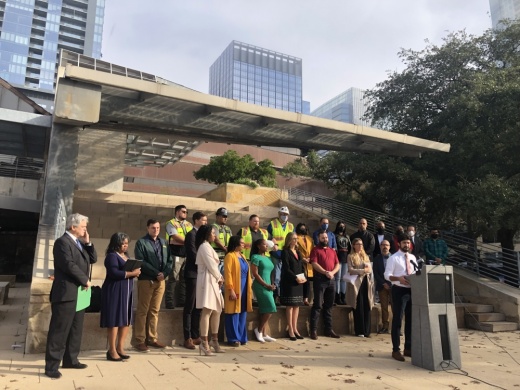Carol Johnson, the city’s first civil rights officer, said at a press conference ahead of the vote that the new powers will make existing workplace and civil rights protections enforceable.
Speakers, including City Council Member Greg Casar, who sponsored the item, pointed out how the ordinance will support Black workers, members of the LGBTQ community and formerly incarcerated people.
“With the establishment of the civil rights office here in the last budget and now the Civil Rights ordinance today,” Casar said, “Austinites will know that we have your backs—that if you face sexual harassment, you have a place to come. That if you are discriminated against at work, or out on the street, that you have somebody to call who can enforce those civil rights ordinances.”
Commissioner Alicia Weigel of the Austin Human Rights Commission pointed out at the press conference that the commission is made up of volunteers. At one discrimination hearing she attended prior to the creation of the new office, they were presented with large binders of information they did not have time to review while also not being clear on parliamentary procedures.
“I don’t believe justice was served,” Weigel said of the hearing.
She said the new office means these cases will now be in the best hands.
Adam Orman, local restaurant owner and co-founder of nonprofit Good Work Austin, which provides small businesses with access to low-cost health care and counseling, said workers will now know the city has their back.
“A paid sick leave ordinance means nothing without a local means of enforcement and compliance,” Orman said. “Employees need a mechanism at the city level to make it as easy as possible to exercise their rights.”





